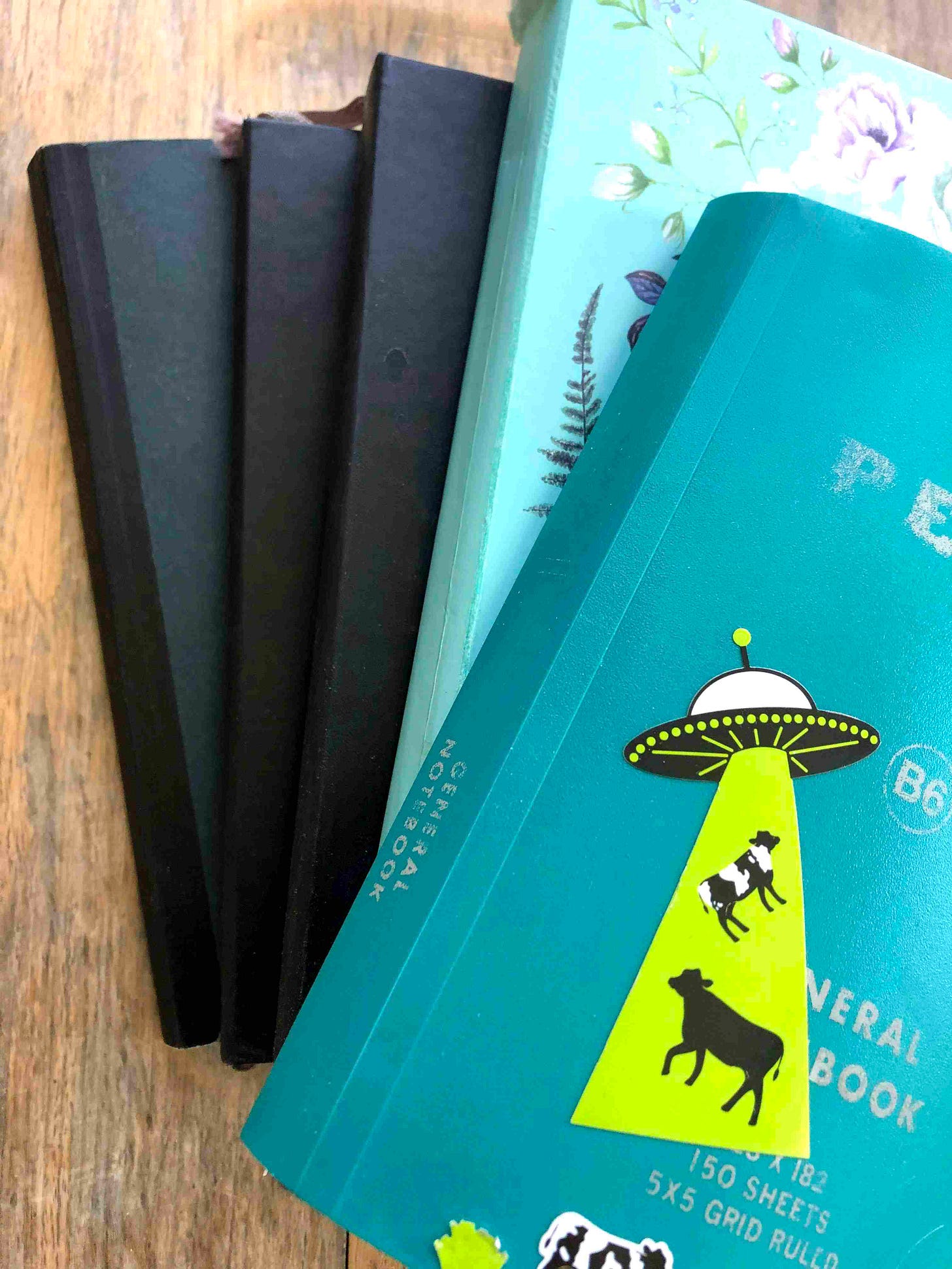“Rest your head here.” I have started writing that on the first page of my journals. Its is an invitation to lay down all the thoughts that clog my mind, and let some stay on the page, letting me walk away feeling lighter.
Joan Didion wrote “I write entirely to find out what I’m thinking, what I’m looking at, what I see and what it means. What I want and what I fear. (from Why I Write) And this is so true for me - I hear all these words and ideas in my head, and it’s not until I write them out that I can figure out which are true, which are my own, which are fear talking. I suppose they are all thoughts in my head, but when I write them out, I figure out which thoughts I will claim as my own, and which are unwanted souvenirs from the culture around me. What is real and what is a story that I am telling myself.
I know that this is what journaling does for me, but when I sit down to write, it looks pretty different. I feel dread or I feel tired or maybe I would rather just check Instagram and see some pretty pictures. So, here I am sharing some guidelines that I have come up with over the years, they are reminders for myself as much as they are advice for anyone else. If you are hoping to journal in 2023, maybe these will help you get around your own obstacles.
I usually write in a physical notebook, and occasionally will journal in a computer doc, so if I say “pen” or “notebook” and you think “hands” or “document” it all still works.
Keep your pen moving. When I stop physically writing down words, I start composing or editing in my head. And editing my thoughts… well, that’s not what a journal is for. It’s the place that I don’t have to self-edit, where I can set it all down and sort through what I find. So, keep the pen moving, write the wrong words, see if the right ones occur to you or move on.
Don’t write for an audience. When journaling becomes boring, I am usually including too much context or backstory. I do this all the time, and it’s usually because that’s what I need to get my pen started moving, that’s the point of entry that I can find. But once the details become tedious, it’s ok to switch gears and get into the part that I am needing to process or sort through. If journaling is a chore, then I am unlikely come back to it. Also, those are the times where I am serving my journal, but my journal is not serving me.
Stuck? Have a conversation. I have a (written) conversation between 2 of me, where I am my own loving confidant. Or I imagine that it’s a conversation between my head and my heart. Are you picturing big life decisions “do I take the job or go to graduate school?” It’s much more likely to sound like: “its a random Tuesday and I feel sad, and I don’t know why. Why can’t I just get things done?”
Use what works. When I was too afraid to use a Good notebook (arbitrary definitions here), I had much better success with a legal pad or a messed-up notebook. Like a composition notebook that had two pages of notes from a workshop or a kid, but was otherwise blank. I don’t get the same fear of the blank page if the notebook is already marked up.
This one is specific to a physical notebook, but also… have you tried to find the “right” journaling app, always convinced the next one is right best option? What is the slightly-used composition book of digital journaling? I use one big document on my computer and a notes app on my phone.
Journaling is not for perfect people, it’s for all people who want to keep a journal. So, if the “right” way eludes me (first thing in the AM, hand-written, profound observations, daily entries, a time capsule of daily life), I need to let go of the fantasy (and maybe journal about it).
I am a good inside. Journals are where I blow off steam and sort through frustrations. Does that mean I am a whiny jerk in my journals? Maybe? It feels that way a lot, but when I go back to read them (which is EXTREMELY rare) it’s never as bad as I imagine. Yes, there is complaining, and sure, it’s repetitive over time, but what I really see is an expression of pain or sadness, and I feel love for that woman who was doing her best and trying to figure out what was wrong.
I am offering another round of my online creativity workshop: The Snail’s Guide to Wandering! Subscribe if you want to hear more about it over the next few weeks. Journaling is not part of the class, but its one of the ways that I help make space in my brain for creative thinking - sometimes i will uncover a creative idea in my writing, but most often my journal is where I figure out what is stopping me from moving forward with an idea & how fear is keeping me blocked.




